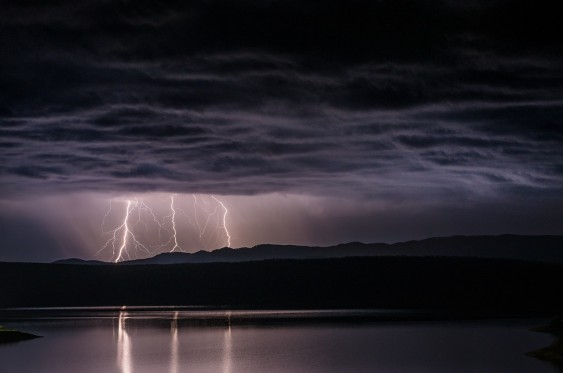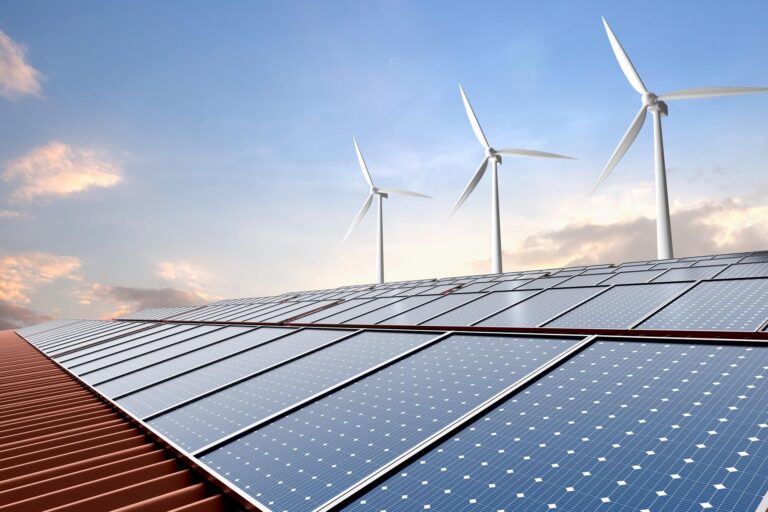Do Solar Panels Work In The Rain?
A major section of areas with installed solar capacity also happen to be the ones that witness a significant amount of rain in a year. While solar panels do work in the rain, solar panels generally exhibit lowered power efficiency in rainy conditions. However, rain also has some positive effects like cooling the panels and removing dust, both of which increases panel efficiency. A question that always comes to the mind of many is what are the efficiency levels that these solar panels offer when it is raining.
What You Will Learn
This blog is a deep dive into the functioning of solar panels in rainy weather as well as the effects that rain has on them. Remember, there are good things that can come from rainy days for owners of solar power systems. We will also look into the frequently asked questions and briefly discuss how the above systems are intended to perform under different weather scenarios.
You might also like:
25 Myths About Solar Factchecked
Do Solar Panels Work in The Rain?
As you’re aware solar panels consist of photovoltaic cells that catch sunlight and turn it into electricity. These panels generate power throughout the day, but their output is lower on rainy days compared to sunny ones. This is the reason that solar panels are not dependent on direct sunlight as most people might think- it is able to collect diffused light in overcast conditions.
Don’t worry though – modern panels on the market are built to capture as much solar energy as they can regardless of the weather conditions. Rain has both positive and negative impacts on solar panels, much of which is discussed below:
1. Disadvantages of Rain for Solar Panels
1. Reduced Power Generation
A power output problem occurs when there is sufficient rainy weather because rain reduces the amount of light that falls on the solar panels. As a result, an average solar panel installation may develop solar electricity output between 20-30% lower during wet days as compared to sunny days. This was achieved by somehow reducing the efficiency of the solar power system for a while but as we have seen, it does not make much difference in the longer run as we shall see shortly.
2. Impact of Cloud Cover
Similarly, cloud cover reduces the output of solar panels as they cannot directly get light from the cloud-covered sky. Still, as long as there is at least some form of light from the clouds, it is still possible to produce electricity through the help of solar panels. The efficiency and output reduction depend on the cloud’s thickness and duration of the cloud cover over a certain area.
2. Advantages of Rain for Solar Panels
1. Cleaning Effect
Gentle rain is typically beneficial for solar panels as it helps to clean off dust, pollen, and other particles that can build up on their surface, which can significantly reduce the amount of light they can collect and absorb. Thus, it is assumed that this form of cleaning can be natural and become significant in maintaining the functions of solar panels.
2. Cooling Effect
Rain also contributes to reducing the temperature of solar panels. Higher temperatures diminish the efficiency of panels and rains lower the temperatures, thereby keeping the panels efficient. Cooler panels are able to provide more efficiency, even if the light of the sun is lessened.
Two Misconceptions About Solar Panels and Rain
Most likely, you might have heard one of the most popular myths that people believe is that solar power panels don’t function during the rainy season. In fact, they keep producing electricity but not at the normal capacity that is expected of conventional power plants. The working structure of solar panels is made in a way that they can efficiently work under so many conditions, such as, under rain or cloud cover.
The other myth is that solar panels need sun in order to work to an optimum level. As much as solar panels are more efficient during sunny days, they operate under diffused light during cloudy or rainy days.
Summary
Solar panels work on any day regardless of the existing weather, but they will obtain less power output than what is obtained from the sunlight. Radiation and other types of heat not only decrease with rain, but also the rain washes the panels and allows them to cool down. Knowledge of these factors aids in the moderation of expectations and promotion of the advantages of solar energy in different weathers.
Frequently Asked Questions
Yes, solar panels can work during a heavy downpour but the degree of conversion is going to be relatively lower. It is also possible to capture diffuse sunlight in stormy conditions with them.
Rain can wash the panels on its own, but if you live in a rather rainy region, it still can be helpful to wash them once in a while.
Contrary to the general power plant’s truth, rain has no impact on a solar panel’s lifespan. They are made to be operational under conditions such as rain, storms, and all other forms of harsh weather
Yes, on the odd occasion that this has been questioned, it can be said that solar panels can generate electricity during a thunderstorm, though the amount of energy produced is likely to be lower than during clearer weather conditions on account of the darkness.
Solar panels are typically silent, and rain does not generate any noticeable noise. The rainwater falling on solar panels is generally dispersed, and the panels themselves are designed to be quiet. Therefore, solar panels are not considered noisy in the rain.







